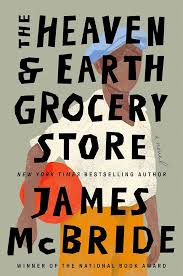Chapter 29: Waiting for the Future
byChapter 29: Waiting for the Future begins with disarray, a hallmark of small-town celebrations where preparation often falters beneath the weight of tradition. The parade, symbolic of unity and pride, was ironically stalled by chaos—the breakdown of a fire truck and mismatched Revolutionary War costumes. At the center of this unraveling was Hal Leopold, a man obsessed with order, reputation, and ceremonial perfection. His frustration over incorrect coats and tarnished props revealed more than his standards; it highlighted how superficial details often mask deeper fractures in a community’s history and relationships.
Amidst this spectacle, men like Gus Plitzka and Doc Roberts attempted to correct mistakes not of their making. A red British coat, a painful foot, and a poorly organized system forced improvisation, which foreshadowed the unraveling to come. Yet the disorder ran deeper than uniforms. The missing Jewish volunteers, normally the backbone of such events, underscored a growing absence of cohesion in a town fractured by suspicion, debt, and prejudice. The Skrup brothers’ silence on leather repairs was not negligence—it was quiet protest. These layers of tension foamed just beneath the surface, ready to boil over.
Backstage, debts came due. Gus, entangled with gang-related threats from the likes of Henry Lit—an ex-boxer turned enforcer—found himself cornered. His attempt to switch uniforms was not just about wardrobe; it was symbolic of an urgent desire to deflect attention, to camouflage himself in a parade he once proudly marched in. Meanwhile, Doc, a man once seen as respectable, let alcohol unlock a bitterness rooted in classism, racism, and unfulfilled longing. His ramblings weren’t isolated thoughts but mirrored the toxic ideals that, if left unchecked, would bleed into policies and politics beyond Pottstown’s borders.
In a darker corner of town, Fatty and Big Soap—two Black men familiar with survival—carried out a hidden mission: redirecting a water supply to the synagogue using makeshift tools and brute strength. Their knowledge, their cooperation, and their sheer grit contrasted sharply with the disorder of the official celebration. While the parade stumbled under mismanagement and ego, these men worked efficiently, their task born from necessity and loyalty. Beneath the town’s surface ran not just water but a network of quiet resistance and mutual aid.
As the fireworks lit the sky, it became clear who the town really celebrated. While Doc toasted America’s myths in slurred speech, Fatty and Big Soap toiled to create something tangible—a working water source. Their effort wasn’t recognized publicly, but it ensured survival. In a land obsessed with spectacle, real change was being forged underground, literally and figuratively. And as Fatty covered the well—unaware of the body within—it became a grave not just for a man but for an idea: that bluster could protect you from consequences.
That body, still dressed in the red coat meant to represent the British, became a cautionary tale. The red uniform, once a parade detail, turned into a symbol of arrogance and failure. The mezuzah pendant found near the corpse whispered of ironies too profound for Doc to have understood in life. The object he scorned, dismissed as meaningless, marked the end of his journey—one not toward redemption but oblivion. It wasn’t political enemies or foreign foes who ended him, but his own rot, his own refusal to see others as human.
In the end, Pottstown moved on. The next day brought cleanup, routine, and conversations about the parade’s mishaps—not its unseen casualties. The community would remember the wild horse, the broken fire truck, and the free beer before they recalled any whispers of what went wrong. Fatty and Big Soap, the unwitting pallbearers, buried more than water pipes that night. They sealed away a history that would never make the town’s commemorative plaques. But that’s often how history works—its loudest chapters aren’t always its most honest.
What remains is the question: who gets remembered, and how? The town’s myths about patriotism, honor, and heritage lived on in parades and speeches, but their truest lessons were etched into cracked cement beneath their feet. Some celebrated freedom while others labored in secret to preserve dignity. The irony, of course, is that those forgotten efforts are what sustained the very community that failed to recognize them. In America, myth too often drowns out memory—and sometimes, the truth lies six feet below the surface, encased in silence and stone.


